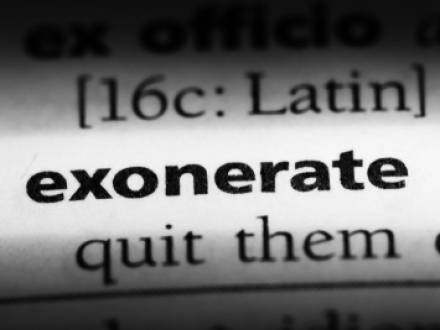Can You Overturn a Criminal Conviction With New Evidence in Maryland?
 Overturning a criminal conviction with new evidence is possible in Maryland, but it requires meeting strict legal standards. If you have discovered new facts that could prove your innocence or cast serious doubt on your guilt, Maryland law provides a way to bring that evidence forward, even after the trial has ended. A Lingnore-Bartonsville, MD criminal defense attorney can help you understand and navigate this process.
Overturning a criminal conviction with new evidence is possible in Maryland, but it requires meeting strict legal standards. If you have discovered new facts that could prove your innocence or cast serious doubt on your guilt, Maryland law provides a way to bring that evidence forward, even after the trial has ended. A Lingnore-Bartonsville, MD criminal defense attorney can help you understand and navigate this process.
What Does Maryland Law Say About Post-Conviction Relief?
In Maryland, if you were convicted of a crime, you can seek relief through a post-conviction petition. This process allows you to ask the court to review your case if there is newly discovered evidence. Under Maryland Criminal Procedure § 7-103, a petition for post-conviction relief must typically be filed within three years of the finalized conviction. However, when the issue involves new evidence that could not have been discovered earlier with reasonable effort, courts will often allow a late petition. Additionally, Maryland Criminal Procedure § 7-104 states that the court may reopen a case after a conviction if it believes it is in the interests of justice.
What Are Some Examples of New Evidence in a Maryland Criminal Case?
Examples of qualifying new evidence in a Maryland criminal case might include:
-
Previously unavailable witnesses who come forward with testimony that supports the defense or contradicts key prosecution claims
-
New DNA or fingerprint analysis made possible by advancements in forensic technology since the original trial
-
Recantation by a key prosecution witness, especially if their original testimony was central to the conviction
-
New expert analysis or testimony that undermines the scientific evidence used at trial
-
Evidence of misconduct by the police or prosecution, such as coercing confessions, tampering with witnesses, or falsifying reports
-
Inconsistent statements by key witnesses discovered after the trial through civil cases, media interviews, or public records
Sometimes, "new evidence" might include evidence that the state had and did not disclose. Technically, the evidence is only new to you and your attorney. Failing to disclose that evidence is known as a Brady violation, established in the 1963 Brady v. Maryland case. Often, withheld evidence is powerful and can include witness statements, surveillance footage, forensic reports, and more. Proof that the prosecution withheld evidence that would support your innocence would justify a new trial or even a dismissal of charges, depending on the evidence.
How Strong Does New Evidence Need To Be To Overturn a Conviction?
To overturn a conviction, you would have to prove that the newly discovered evidence could not have been found before now, even with due diligence. Specifically, the evidence must be credible, material, and point to a high probability of innocence.
What does it mean for evidence to be material? Material evidence is relevant to the case and has a high potential to significantly impact the outcome. It has to cast doubt on the original verdict. Ultimately, the judge gets to decide whether the evidence you provide is material.
Contact a Rockville, MD Criminal Defense Attorney Today
If you have uncovered new evidence post-conviction, you may still have a path toward justice. These cases require strategic thinking and a deep understanding of Maryland’s post-conviction process.
At Salvado Law Offices, we approach every case with the diligence and focus it deserves. Attorney Carlos Salvado is not only a committed Linganore-Bartonsville, MD criminal defense lawyer in the courtroom but also a trusted voice in the Hispanic community, frequently appearing on Agendo Radio to address legal issues that impact Latin Americans and immigrants locally and nationwide. Contact us today at 301-933-1814 to schedule a consultation and explore your options. Se habla Español.











